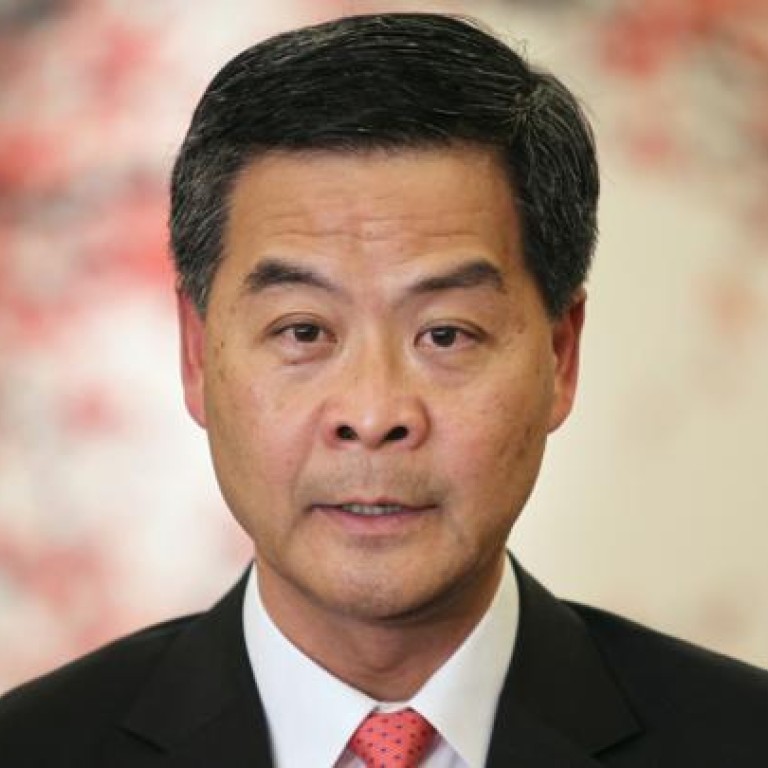
Franklin Lam should not be government adviser
Albert Cheng says Franklin Lam, whose recent flat sales have raised eyebrows, should not have been appointed to the Executive Council
Since taking office, Chief Executive Leung Chun-ying has been facing a credibility crisis and an endless string of scandals. As a result, he is the least credible chief executive since the handover.
First, the exposé that his Peak home had unauthorised structures bankrupted his credibility. He had pledged to give a full account of the matter after a professional team completed its investigation into the breaches.
But four months on, Leung has yet to deliver what he promised. He seems to be suffering from short-term memory loss and there's been no word about the investigation.
Fortunately, there is some justice in this world. Two politically accountable senior officials in charge of land development and planning were caught in a web of scandals. Mak Chai-kwong lasted only 12 days as secretary for development after allegations surfaced about a cross-leasing scam to defraud the government by claiming housing allowance.
He was replaced by Paul Chan Mo-po, who was soon embroiled in his own credibility crisis when he was found to own flats that were illegally subdivided.
After that scandal, he was accused of driving soon after drinking beer at a family lunch last month. His irresponsible actions have dented the administration's credibility, go against government policy and Chan has humiliated himself as well as the administration in the process. Chan doesn't have a shred of credibility left. He should resign.
We have seen plenty of controversies, one after another. Despite the low popularity ratings of Leung and his government, he has still tried to push through a few highly unpopular policies, including national education and the development of the northeastern New Territories, which could open the border to Shenzhen. Furthermore, Leung has failed to fulfil his election campaign pledge to cool the overheated property market. On the contrary, Hong Kong home prices have increased by 18 per cent this year, making it even harder for those who don't own their own homes to enter the market.
Last week, when the government, led by Financial Secretary John Tsang Chun-wah, launched a new crackdown on property speculators, it was revealed that executive councillor Franklin Lam Fan-keung had sold two Mid-Levels flats just weeks before the surprise measures were announced to cool the property market.
Lam, a well-known property analyst before his Executive Council appointment, is believed to have made an additional profit as a result. The case is far more serious than the 2003 "Lexusgate" scandal, which forced former financial secretary Antony Leung Kam-chung to step down. Leung came in for severe criticism when he bought a Lexus just weeks before he raised the tax on new vehicles in his budget plan.
Lam's case involves the possible use of an official position to obtain personal gain and it also touches upon political morality. His only choice is to resign from Exco. Again, it shows that Leung and his team have a total disregard for the rules and regulations and have no respect for the government system.
Lam is well connected within the property sector and has reaped huge profits from property speculation in the past. When he was appointed to Exco, his declaration of registrable interests showed he owned 27 properties.
To avoid any possible conflict of interest, Lam has pledged not to buy or sell any property in the next five years while he is in Exco. At the most he will sell one or two medium-priced properties to cover expenses for supporting his parents.
But his recent Mid-Levels property transactions involved a total of about HK$20 million before the proposed increase in stamp duty. He made HK$10million from the sales.
Apart from those two flats, Lam said he had put two other flats up for sale at the end of June, before he joined Exco.
He said he needed to sell these flats because he has no other income, after donating his monthly pay of over HK$60,000 as an executive councillor to charity.
Even without this case, it was still inappropriate for Leung to appoint Lam to Exco. It goes against the chief executive's earlier pledge to cool the market, because Lam supports a robust property market. It projects a bad public image for Leung no matter how you look at it.
Leung only pays lip service to the aspirations of the people to crack down on property prices, but deep down he wants to build a close network of property elites and a power base that comprises mainland property tycoons to replace the local ones.
All Leung's property experts who act as his advisers seem to have benefited from the property market. We can't expect any positive change from this government. More scandals? Now that's a different matter.

